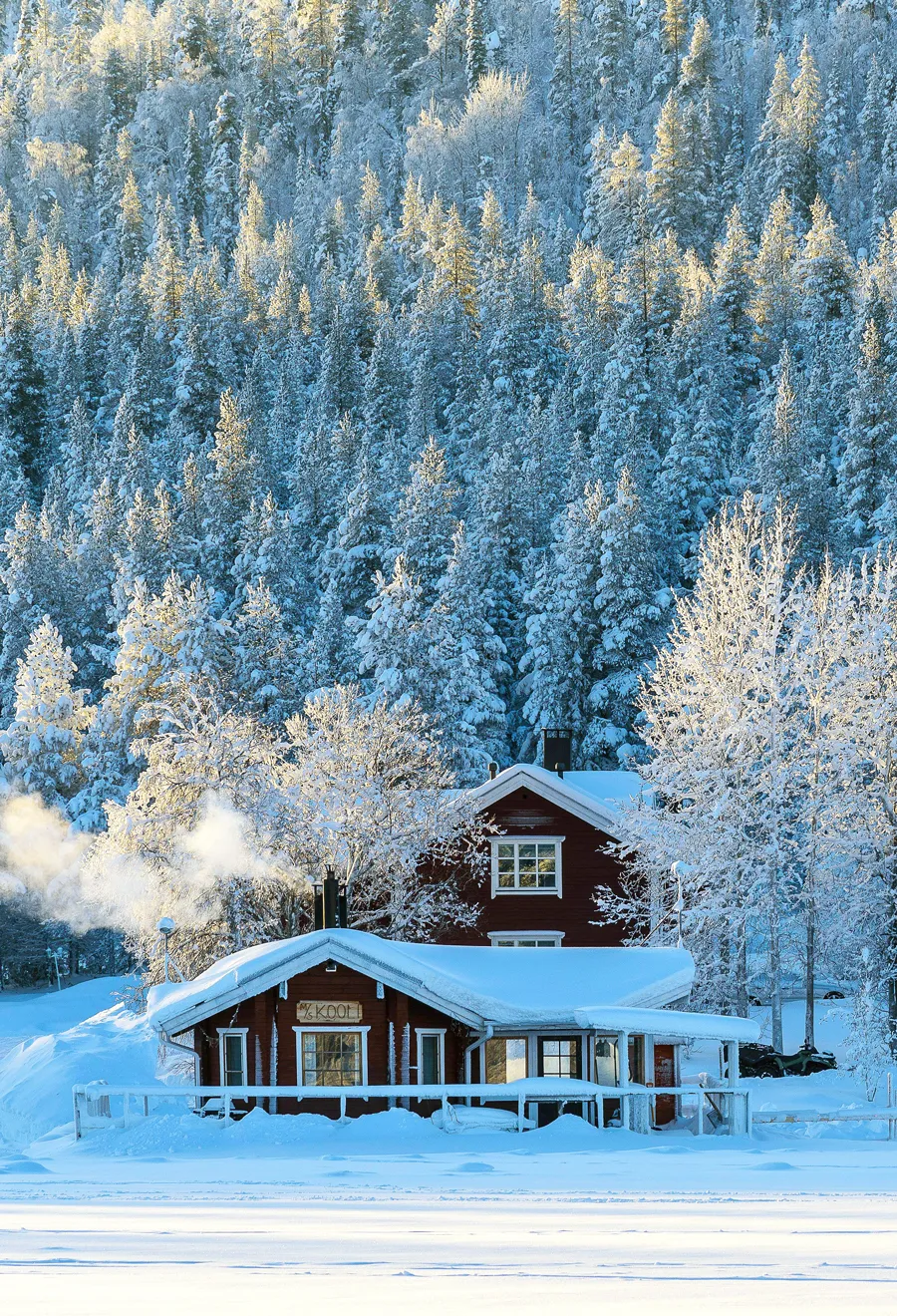It’s not just your imagination: The feeling of calm that washes over us when we’re sunbathing at the beach, enjoying lake life on a boat, or soaking our muscles in a natural hot spring may actually be a semimeditative state affecting our bodies. Late marine biologist Dr. Wallace J. Nichols’ “Blue Mind Theory” suggests that being in or near water can impact overall quality of life by improving focus and creativity, bridging a connection to nature, reducing stress and anxiety, and elevating mood. Here’s everything you need to know about this travel trend that’s making waves in 2025.
Washing Away Stress and Sickness
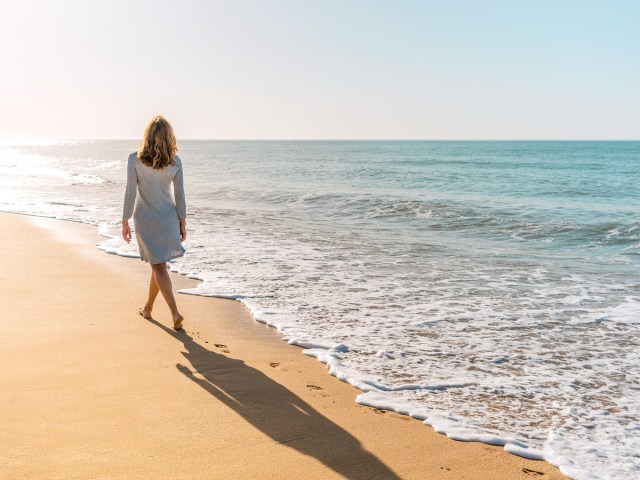
According to Nichols, as little as 23 minutes of exposure to water can trigger the release of dopamine and oxytocin in the brain to prompt feelings of happiness, which may be why many hotels and resorts around the world are offering even more water-based activities and spa treatments than ever before. In 2020, the National Library of Medicine interviewed 184 customers of thermal spas and similar establishments and found that their interaction with water had a profound impact on their sense of well-being, leading them to positively rank their satisfaction with their vacation.
But the science behind the health benefits of exposure to water goes beyond general feelings of contentment. In a 2025 study published in Environment International, scientists found that “sea spray aerosol (SSA) is a complex mixture of natural substances that can be inhaled by coastal residents.” Over the course of a year along the Ostend coast in Belgium, human bronchial epithelial cells were exposed to SSA samples leading to positive effects on overall health. And in another study by the National Trust in the United Kingdom, participants who took a seaside stroll before bed slept 47 minutes longer than those who took an evening walk inland.
Those who promote the benefits of water treatments, especially flotation therapies, highlight water’s ability to lower cortisol (the stress hormone) and believe it reminds humans of floating in amniotic fluid in the womb, which could explain its tranquilizing effect. And you don’t need to even be in still water to feel the stress wash away. According to Dr. William Beecroft, the medical director of behavioral health for Blue Cross Blue Shield of Michigan, crashing waves can break apart water molecules, releasing negative ions that can decrease blood pressure and heart rate.
Where To Practice Blue Mind Travel
Water’s ability to both energize and calm is why many tourists seek out the perfect vacation near a river, stream, lake, waterfall, or ocean. Many properties around the world specialize in unique water access or treatments so that guests can experience the benefits of blue mind travel. Here are a few of our favorites.
Hôtel Royal – Évian-les-Bains, France
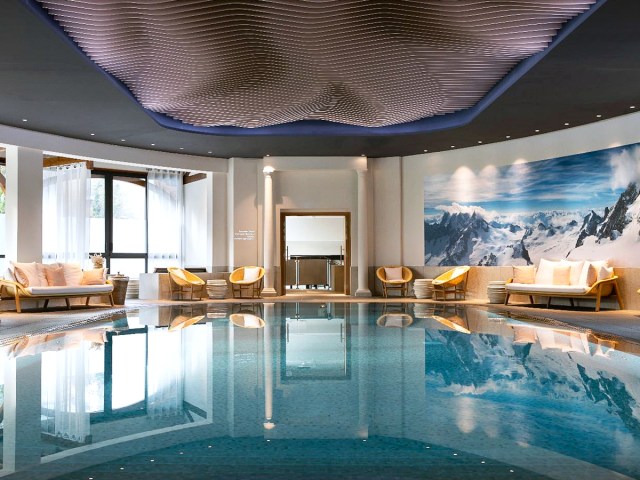
Guests can experience the restorative properties of Alpine water with exclusive therapeutic treatments at Hôtel Royal Evian in Évian-les-Bains. Evian water is sourced from the Alps and travels for approximately 15 years before reaching this five-star property in southeastern France, near the Swiss border. The on-site Evian Spa offers hydromassage baths, facials using Evian water, and massages beneath a water ramp.
Joali Being – The Maldives
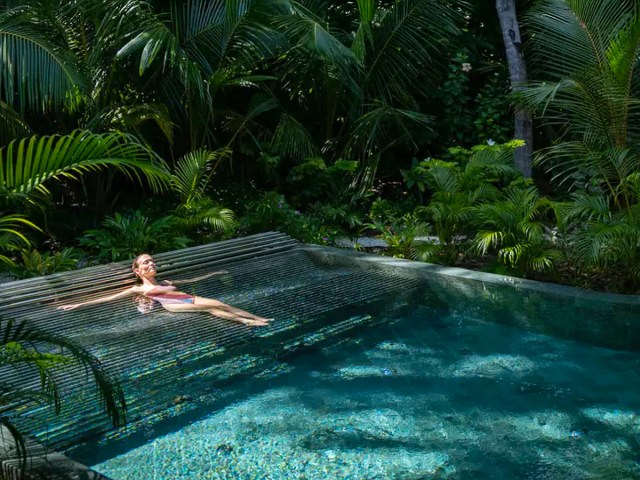
Developed by aquatic bodyworker and poet Harold Dull in the 1980s, Watsu (water shiatsu) is a combination of stretches, massage techniques, and gentle movements in warm water. At wellness resort Joali Being in the Maldives, guests can experience this unique treatment in a pool with master Watsu practitioner Toru Ogasawara. Being submerged in the warm turquoise water while your body relaxes its muscles is said to deepen the connection between body, mind, and spirit.
Chablé Yucatán – Chocholá, Mexico
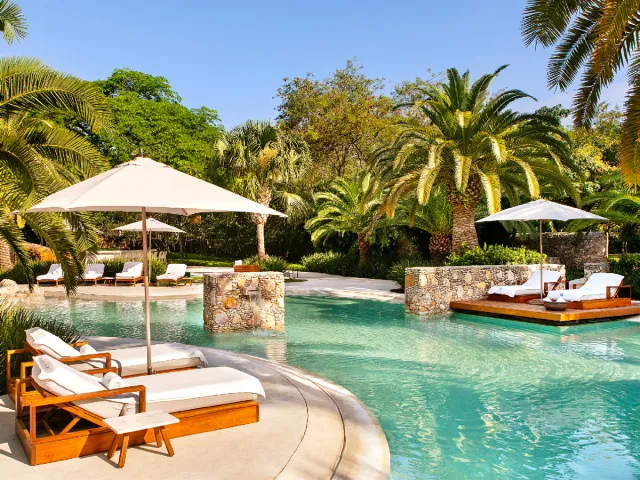
Hidden in the heart of the Maya forest in Mexico’s Yucatán Peninsula, Chablé Yucatán features a spa built into a cenote, a natural pit or sinkhole possessing natural spring water that locals believe to have healing properties. Cenotes are unique to the Yucatán Península, which is why checking out the cool abyss surrounded by banyan trees and hydrotherapy treatments is popular among visitors.
Le Barthélemy Hotel & Spa – St. Barthélemy
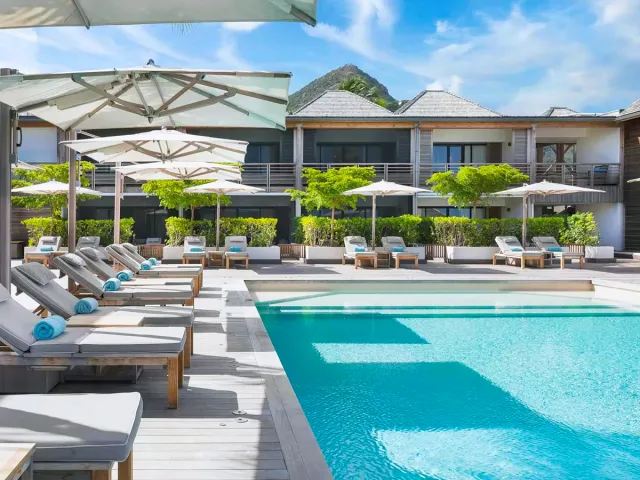
Another popular wellness treatment featuring water, Janzu is an aquatic bodywork in which participants are guided into a meditative state using a series of gentle movements. At Le Barthélemy Hotel & Spa in St. Barts, a French-speaking island in the Caribbean, guests can enjoy the spa service as well as private enclaves with ocean access and heated plunge pools for when the sun goes down.
Ryokan Collection – Japan
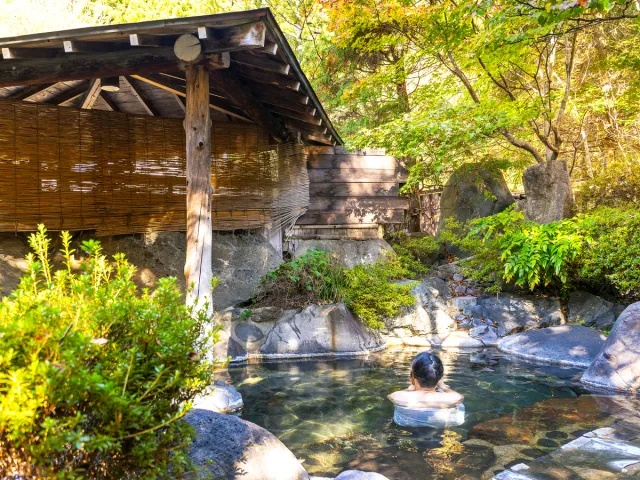
For centuries, bathing at onsen (natural hot springs) has been a significant part of Japanese culture, associated with relaxation, quality time with loved ones, and therapeutic effects due to the water’s high mineral content. A ryokan, or a traditional Japanese inn often featuring onsen, is a worthwhile experience for those seeking the rejuvenating benefits of water and practicing blue mindfulness. The Ryokan Collection is a group of 32 inns around Japan where guests can experience these traditional accommodations.
Immelkartano – Sirkka, Finland
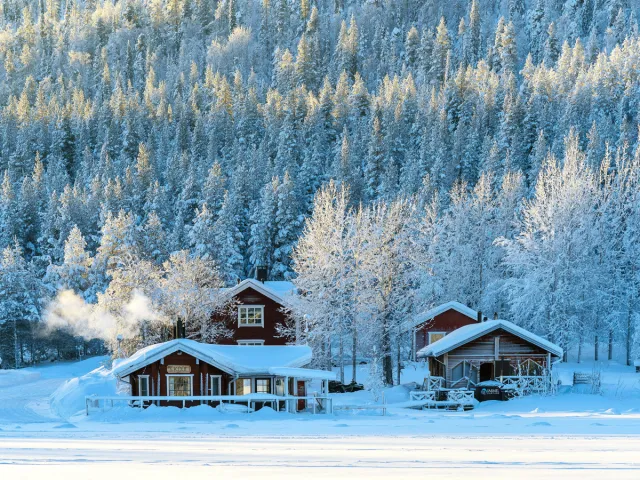
If you’ve ever tried cryotherapy in the U.S. — exposing the body to extremely cold temperatures to reduce inflammation and improve recovery — experiencing avantouinti (“ice swimming”) in Finland is a must. At Immelkartano in Sirkka, guests can brave the chilly water temperatures in Lapland with an arctic bath to cleanse the body and mind after they take a long soak in a hot tub.
More from our network
Daily Passport is part of Inbox Studio, an email-first media company. *Indicates a third-party property.






